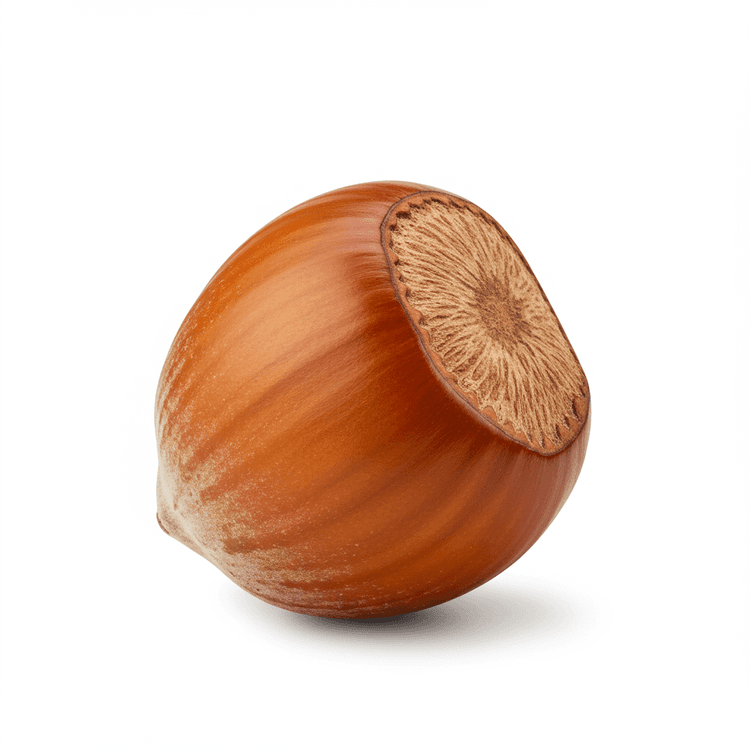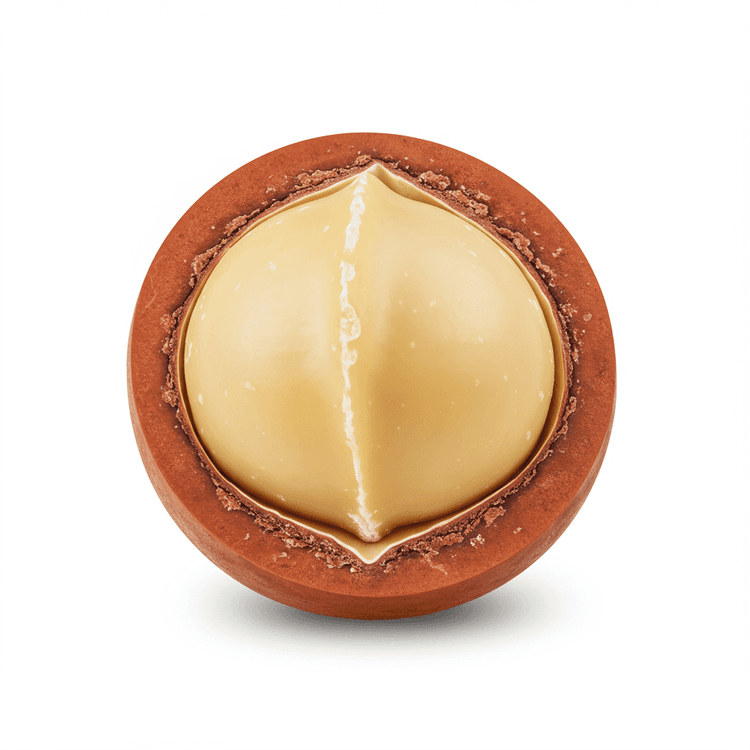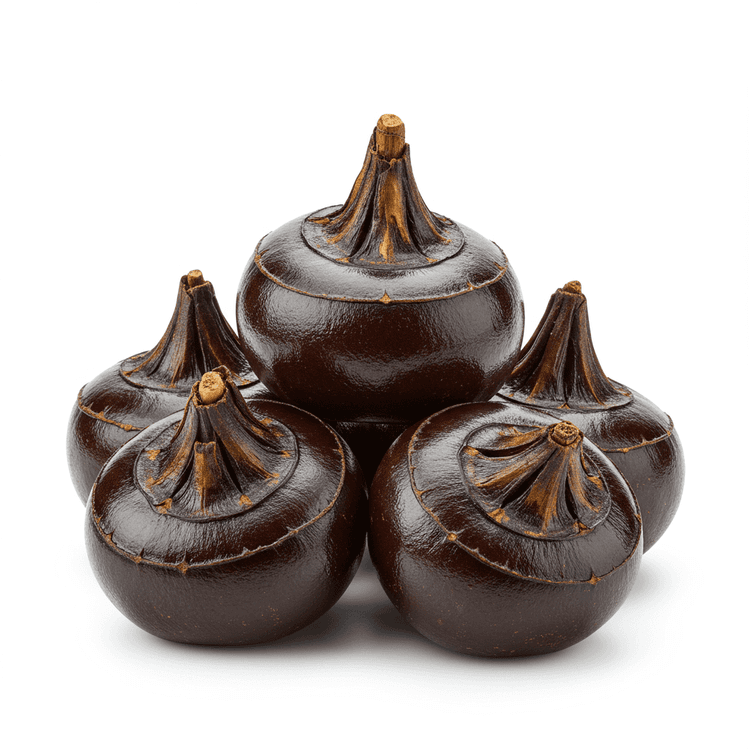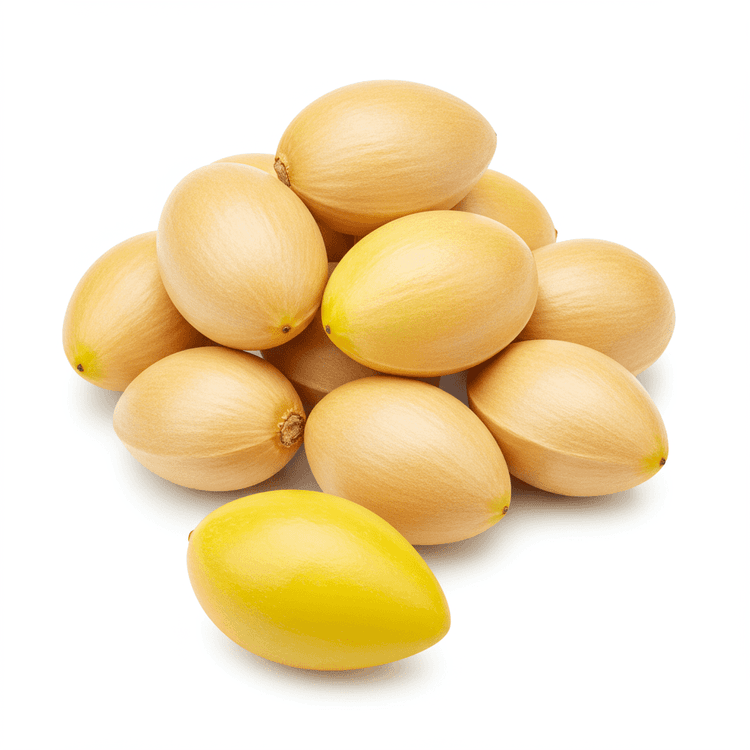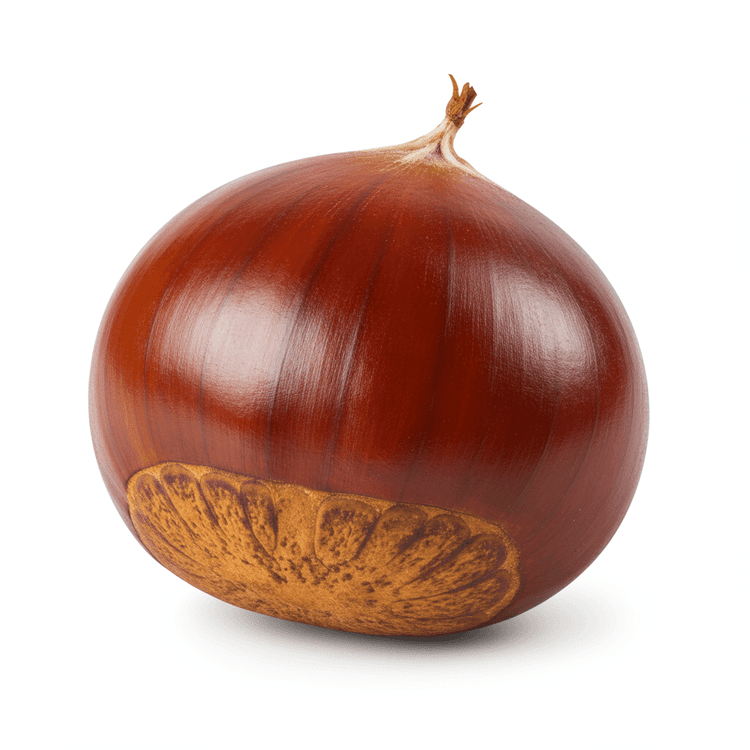
Chestnut
Chestnuts are edible nuts known for their distinctive flavor and smooth, glossy shell. These seasonal treats have a slightly sweet and nutty taste when roasted, often described as earthy and buttery. Raw chestnuts have a firm, almost crunchy texture, which transforms into a soft, floury consistency after cooking. They boast a creamy-white interior beneath their dark brown, leathery exterior. When you are looking for a naturally gluten-free ingredient that provides warmth and depth to savory dishes, look no further than the chestnut.
Common Uses
- Roasted chestnuts are a classic holiday snack, offering a warm, nutty flavor perfect for cold evenings. Roasting enhances their sweetness and softens their texture.
- Chestnut puree is used as a base for soups, sauces, and desserts, adding a creamy texture and subtly sweet flavor to dishes, making them richer and more satisfying.
- Chestnuts can be candied and enjoyed as a sweet treat, known as marrons glacés. These are a delightful indulgence, preserved in sugar syrup for a sweet and tender bite.
- Ground chestnuts can be used as a gluten-free flour substitute in baking, adding a unique nutty flavor to cakes, cookies, and breads, providing a healthful alternative for those with dietary restrictions.
- Chestnuts are often incorporated into savory dishes, such as stuffings for poultry or game, or used to complement roasted vegetables, adding a delicious earthy note and a boost of nutrients.
- Boiled chestnuts can be mashed and used as a filling for ravioli or other pasta, offering a unique and savory flavor profile that's both hearty and comforting.
Nutrition (per serving)
Nutrition (per serving)
Calories
245.0kcal (12.25%)
Protein
4.2g (8.4%)
Carbs
53.1g (19.31%)
Sugars
11.8g (23.6%)
Healthy Fat
1.5g
Unhealthy Fat
0.4g
% Daily Value based on a 2000 calorie diet
Nutrition (per serving)
Calories
245.0kcal (12.25%)
Protein
4.2g (8.4%)
Carbs
53.1g (19.31%)
Sugars
11.8g (23.6%)
Healthy Fat
1.5g
Unhealthy Fat
0.4g
% Daily Value based on a 2000 calorie diet
Health Benefits
- Good source of dietary fiber, promoting digestive health and regularity.
- Rich in antioxidants, which help protect cells from damage and reduce the risk of chronic diseases.
- Provides essential minerals like potassium and magnesium, supporting heart health and muscle function.
- Contains complex carbohydrates for sustained energy release and blood sugar control.
- Gluten-free and hypoallergenic, making them a suitable option for individuals with dietary restrictions.
- Lower in fat compared to other nuts, contributing to a heart-healthy diet.
Chefadora AI is here.
Experience smarter, stress-free cooking.
Storage Tips
Store fresh chestnuts in a cool, dry place, preferably in the refrigerator, to prevent them from drying out or molding. Place them in a breathable bag or container to allow for air circulation. They can last for several weeks when stored properly. Cooked chestnuts can be refrigerated for up to 3-4 days in an airtight container. For longer storage, cooked chestnuts can be frozen for up to several months. Prior to freezing, ensure they are cooled completely and stored in a freezer-safe bag or container.
Marnirni-apinthi Building, Lot Fourteen,
North Terrace, Adelaide, South Australia, 5000
Australia

